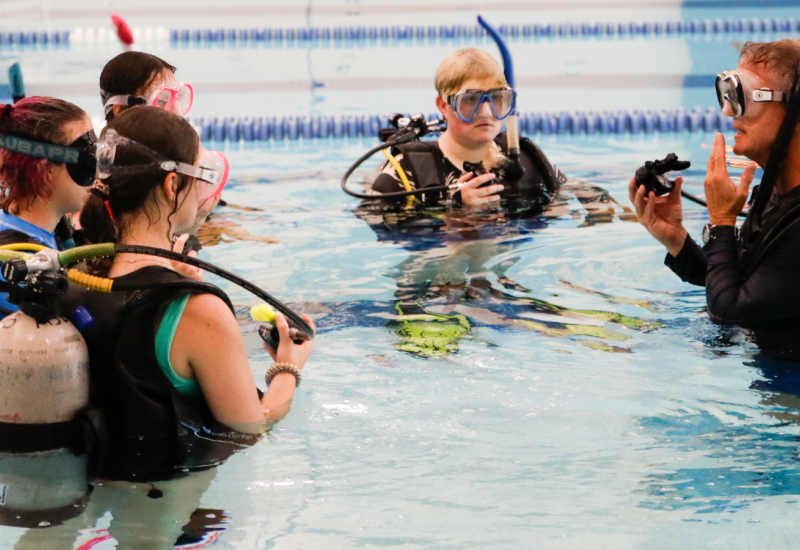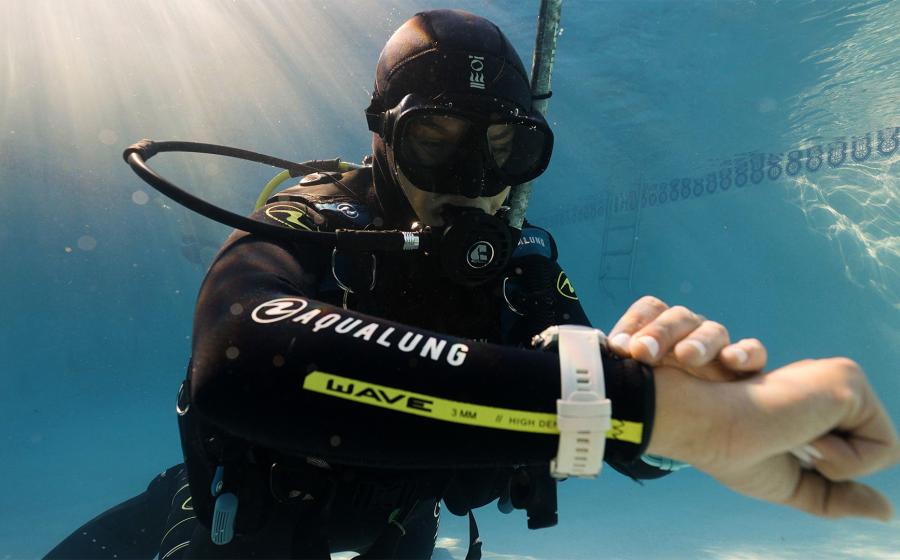Keep F.I.T. for Diving
By Patrick Roward
At its best, scuba diving is an undemanding physical activity, but when unexpected stress and exertion crop up underwater, heart-unhealthy divers can become statistics like those that made heart complications the number-three disabling injury in DAN's newest fatality study (below). The American Heart Association says regular physical activity is one of the best ways to prevent heart disease. Before jumping in the water, get yourself heart-smart with the following F.I.T. formula to make sure you get the right frequency, intensity and time in your exercise routine.
Frequency
For optimal cardiovascular fitness, do aerobic exercise five to seven days per week. Walking, jogging and biking are great outdoor exercises; cardio machines like treadmills, ellipticals and stationary bikes can be used indoors or at the gym. And don't let your routine get boring. Do different activities on different days of the week to mix it up and help you stick with it.
Intensity
You also need to ensure your heart works at the correct intensity during each aerobic exercise session. Subtract your age from 220 to find your maximum heart rate in beats per minute (BPM). The American Heart Association says your target heart rate should be from 50 to 85 percent of your maximum BPM. So multiply your maximum heart rate by 0.5, and again by 0.85 to get your target heart rate range. When you exercise, check your pulse periodically to ensure your BPM stays within this range.
Time
The American College of Sports Medicine says each aerobic workout session should last 30 to 45 minutes to get the maximum cardiovascular benefit, but it's OK to break your sessions into segments. Try two or three 15-minute intervals with a break in between them.
There are exceptions to these rules. Some medications for high blood pressure can lower your maximum heart rate, so in that case, or if you have an underlying cardiac condition, you should always check your exercise plan and target heart rate with your physician beforehand.
By Patrick Roward
At its best, scuba diving is an undemanding physical activity, but when unexpected stress and exertion crop up underwater, heart-unhealthy divers can become statistics like those that made heart complications the number-three disabling injury in DAN's newest fatality study (below). The American Heart Association says regular physical activity is one of the best ways to prevent heart disease. Before jumping in the water, get yourself heart-smart with the following F.I.T. formula to make sure you get the right frequency, intensity and time in your exercise routine.
Frequency
For optimal cardiovascular fitness, do aerobic exercise five to seven days per week. Walking, jogging and biking are great outdoor exercises; cardio machines like treadmills, ellipticals and stationary bikes can be used indoors or at the gym. And don't let your routine get boring. Do different activities on different days of the week to mix it up and help you stick with it.
Intensity
You also need to ensure your heart works at the correct intensity during each aerobic exercise session. Subtract your age from 220 to find your maximum heart rate in beats per minute (BPM). The American Heart Association says your target heart rate should be from 50 to 85 percent of your maximum BPM. So multiply your maximum heart rate by 0.5, and again by 0.85 to get your target heart rate range. When you exercise, check your pulse periodically to ensure your BPM stays within this range.
Time
The American College of Sports Medicine says each aerobic workout session should last 30 to 45 minutes to get the maximum cardiovascular benefit, but it's OK to break your sessions into segments. Try two or three 15-minute intervals with a break in between them.
There are exceptions to these rules. Some medications for high blood pressure can lower your maximum heart rate, so in that case, or if you have an underlying cardiac condition, you should always check your exercise plan and target heart rate with your physician beforehand.










